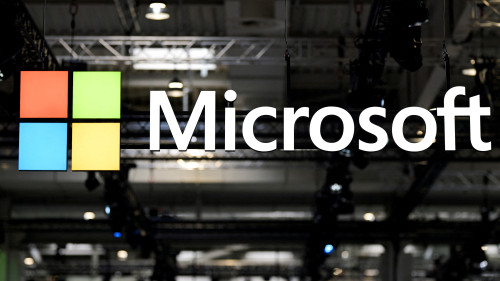(Reuters) -Microsoft topped quarterly revenue expectations on Wednesday on strong Azure cloud-computing growth, reassuring investors that its hefty AI investments were paying off and sending shares in the company more than 6% higher in after-hours trading.
The results are likely to ease concerns about a potential slowdown in AI demand, after some analysts pointed to canceled data center leases at Microsoft as a sign of excess capacity. Investors had also been worried about the fallout from sweeping U.S. tariffs that are prompting businesses to rein in spending.
Microsoft said revenue at its Azure cloud division rose 33% in the third quarter ended March 31, exceeding estimates of 29.7%, according to Visible Alpha. The Intelligent Cloud unit, which houses Azure, posted revenue of $26.8 billion, compared with expectations of $26.17 billion.
Overall, revenue rose 13% to $70.1 billion, beating analysts’ average estimate of $68.42 billion, according to data compiled by LSEG.
Rival Alphabet also posted strong results last week as AI features integrated into Google Search helped attract more ad dollars and fend off competition from startups like OpenAI, even as its cloud unit growth was hampered by supply shortages.
Microsoft, which has also repeatedly said it is capacity constrained on AI, has been pouring billions into building its AI infrastructure and expanding its data-center footprint.
In the third quarter, Microsoft’s capital expenditures rose 52.9% to $21.4 billion, less than estimates of $22.39 billion, according to Visible Alpha.
A senior Microsoft executive reiterated earlier this month that the company would spend $80 billion on its data center build-out this year, and investors will be watching closely to see if it reaffirms that on its post-earnings call.
A pullback in Big Tech’s AI spending will have big implications for suppliers such as chip giant Nvidia, as well as the U.S. economy. J.P. Morgan analysts estimated in January that data-center spending could contribute between 10 and 20 basis points to U.S. economic growth in 2025-2026.
(Reporting by Deborah Sophia and Aditya Soni in Bengaluru; Additional reporting by Stephen Nellis in San Francisco;Editing by Matthew Lewis)





